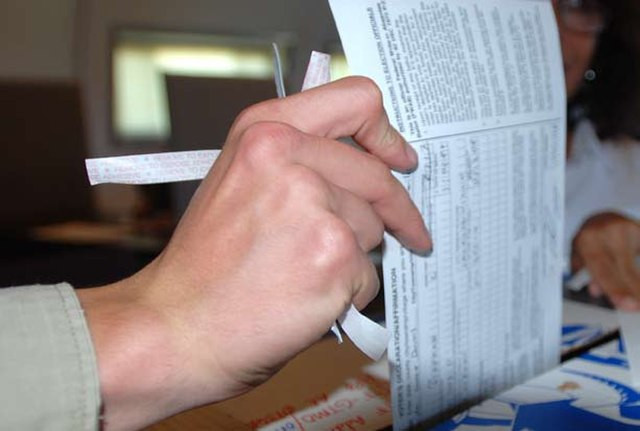A Chinese national studying in Michigan faces felony charges for allegedly voting in the 2024 U.S. election, sparking fresh debate on voter eligibility. Authorities disclosed that the 19-year-old international student, who attends the University of Michigan in Ann Arbor, registered to vote on-site on October 27 and cast his ballot the same day. Later, he reportedly returned to election officials in an attempt to retrieve his ballot, raising questions about his initial intentions.
Michigan's Secretary of State Jocelyn Benson and Washtenaw County Prosecutor Eli Savit announced the charges in a joint statement, emphasizing the state's commitment to strict enforcement of voter laws. "Any noncitizen who attempts to vote fraudulently in Michigan will be exposing themselves to great risk and will be prosecuted to the fullest extent of the law," the officials stated. They also reiterated that cases of noncitizens voting are "extremely rare" and typically identified quickly.
Sources close to the investigation told CNN that the student had provided residency documentation, including his university ID, to register on the same day he voted. The student then allegedly attempted to contact election officials later to withdraw his ballot. A source noted that while he is in the U.S. legally, voting without citizenship status is illegal, and the act may carry severe consequences, including potential deportation.
The case comes amid heightened attention on voter eligibility and security, with former President Donald Trump and his allies calling for stricter measures to prevent noncitizen voting. Although noncitizen voting is statistically rare, it remains a focal point in national discussions on election integrity, especially in swing states like Michigan. Experts, including former Justice Department official David Becker, note that instances of voter fraud by noncitizens are exceptionally rare and generally result in prompt enforcement actions.
In the Michigan case, the student faces charges of attempted illegal voting and perjury. Both charges are felonies that carry significant legal implications, and if convicted, the student may face deportation, according to legal experts. Michigan Attorney General Dana Nessel stated her office has launched an "independent, parallel investigation" into the incident, adding to the scrutiny over the student's actions and any possible links to broader issues of foreign interference.
Officials are investigating whether the incident was an isolated event or part of a larger trend. However, no evidence has emerged to suggest any organized effort by foreign actors to influence the 2024 election, and authorities are treating the incident as a unique case. Michigan Secretary of State Benson added, "Investigations in multiple states and nationwide have found no evidence of large numbers of noncitizens registering to vote."
One complicating factor is the ballot itself. According to Washtenaw County Clerk Lawrence Kestenbaum, once a ballot is processed through an in-person voting tabulator, it cannot be separated from others in the batch, making retrieval impossible. "There's a box of ballots underneath the tabulator, and all of the ballots - they all look the same," Kestenbaum explained. "There's no way to go back and undo it." Election law experts confirm this is a common feature in voting systems designed to protect ballot secrecy.
This incident has led to renewed discussions on voter identification laws and the complexities of ensuring only eligible voters participate in U.S. elections. Following the charges, Michigan GOP lawmakers criticized the state's lack of proof-of-citizenship requirements at the polls, calling for reforms to tighten verification processes. Election law expert Ciara Torres-Spelliscy of Stetson University noted that the anonymity in ballot design is both a strength and a potential limitation. "The secret ballot is fundamental to prevent vote-buying and ensures no one can trace a particular vote to a particular voter," Torres-Spelliscy told CNN. "Plucking out an improperly cast ballot is basically impossible because it looks like every other ballot cast by an eligible voter."
Despite calls for stricter voter identification measures, many election officials and legal scholars emphasize that the current procedures have safeguards to detect and prevent unauthorized voting. According to Becker, founder of the nonpartisan Center for Election Innovation & Research, the process in Michigan worked as intended, detecting and halting an unusual case promptly. However, Michigan's role as a battleground state in the presidential race places it under additional scrutiny, as both parties closely monitor voting protocols and potential discrepancies.
Michigan's Secretary of State's office has confirmed that the student's ballot will be counted, given that it cannot be removed from the batch without compromising the secrecy of the election. The case, however, underscores the complexities of election administration and the balance between voter accessibility and security.






